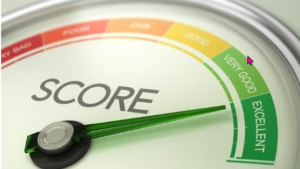 If you’re embarking on a journey to purchase your very first home, you might want to pay attention to your credit score. Your credit profile has a major impact on your ability to secure financing and can also influence your interest rate. Therefore, it can be well worth the time and effort to try to boost your credit score in the weeks or months leading up to a home purchase.
If you’re embarking on a journey to purchase your very first home, you might want to pay attention to your credit score. Your credit profile has a major impact on your ability to secure financing and can also influence your interest rate. Therefore, it can be well worth the time and effort to try to boost your credit score in the weeks or months leading up to a home purchase.
Most lenders require a 620 minimum credit score to qualify for mortgage financing (some are even much higher). While your credit score is influenced by healthy credit habits over time, there are still things you can do in the short term to increase it. Here is some advice:
Start With Your Credit Report

Before you can improve your credit, you’ll need to know what’s on your credit report. Your report will contain your actual credit score and descriptions of each of your credit accounts and your payment history. Keep in mind, there are multiple credit bureaus (Experian, TransUnion, and Equifax), and each has a different way of calculating your score. As a result, your credit could vary depending on which report you pull.
Check Your Report For Errors

Your detailed credit report can often reveal errors or unpaid bills you might not be aware of. Carefully review your report for negative remarks. If you find any, try to pay any missed bills that were sent out for collections or reach out to the credit bureau to resolve the issue.
Pay Down Your Balances

This might seem like a no-brainier, but high credit card utilization can really pull down your score. If you have some extra funds on hand, try to make a large payment if possible. However, you may not want to do so if it causes you to eat into your down payment or closing costs savings.
Increase Your Credit Limit
If you can’t pay off your balance, you can always try to increase your credit limit. Your debt-to-credit ratio is the total balances across all of your accounts divided by your total amount of credit available. This is a. metric lenders use to evaluate how responsible you are with credit. Call your credit card issuer and see if you can increase your line size. This will help reduce your debit-to-credit ratio and could boost your score by a couple of points.
Don’t Miss Any Payments
Even one or two missed payments can cause a drastic decline in your credit score. Therefore, you should never skip a payment. Paying the minimum amount is much better than skipping a payment altogether.
Avoid Unnecessary Hard Inquiries
Hard inquiries occur when a lender pulls your credit report. They can have a negative short-term impact on your overall credit score. As a result, you’ll want to avoid any unnecessary hard inquiries if possible. Keep in mind, you’ll likely have at least one when you go through the pre-approval process with your lender. They typically disappear from your report after one year
Don’t Make Any Major Purchases

Financing a major purchase prior to buying a home can significantly alter your credit profile. Avoid purchasing a new car or putting a significant balance on a credit card. Doing so will increase your debt-to-income ratio, which can heavily impact your credit. You should especially avoid major purchases after you’ve already been pre-approved by your lender.
Healthy credit habits play an important role in the home buying process. Your lender will evaluate whether or not you have a history of using credit responsibly. Practicing good habits is the best way to be prepared when it’s time to apply for a mortgage.






